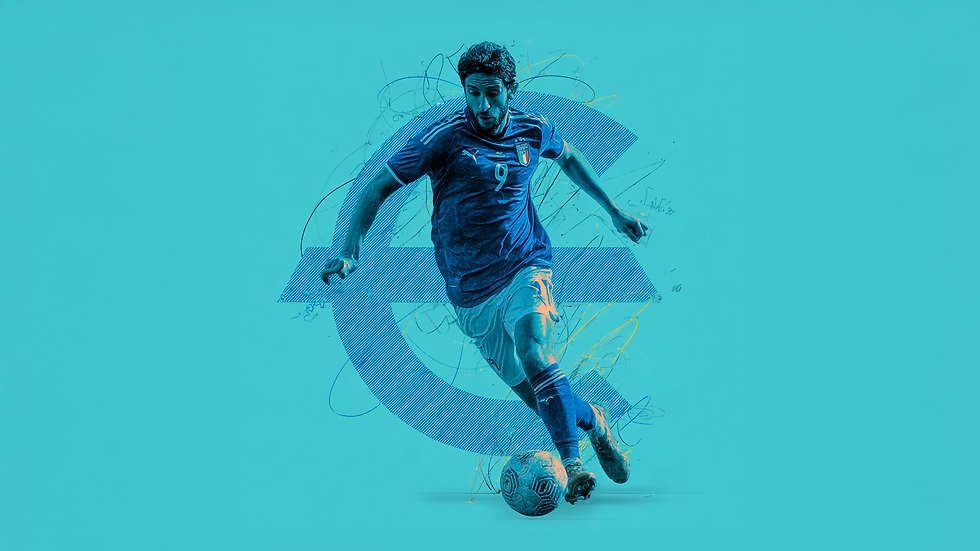The Economic Benefits of Winning the Euros
- Spunt Malta
- Jul 12, 2021
- 2 min read
Winning on the pitch does not only mean lifting a trophy. It also means lifting an economy. Every major tournament has ripple effects beyond football, and the European Championship is no exception.

Brand Finance estimates that Italy’s 2021 Euro victory could add around €4 billion to the country’s GDP in the short term. The reason is simple: higher morale translates into higher consumer confidence. People feel prouder, more optimistic, and more willing to spend.
Confidence and Consumption
The timing of Italy’s win made this effect even sharper. Coming after months of lockdowns and restricted social life, Italians were eager to go out, celebrate, and spend savings accumulated during the pandemic. Restaurants, bars, and entertainment venues reaped the rewards, while the wider hospitality sector enjoyed a much-needed revival.
But the impact is not only domestic. Winning a major tournament also reshapes global perceptions. It boosts how outsiders see the country’s culture, heritage, and people. Italy’s victory reinforced its image not only as a footballing nation but also as a global symbol of resilience and pride.
A Pattern in the Markets
History shows that sporting success often spills over into financial markets. After Greece’s shock Euro win in 2004, the Athens stock exchange outperformed the pan-European STOXX 600 by 20 percent within six months. Spain’s back-to-back victories in 2008 and 2012 saw similar upticks.
Goldman Sachs analysed this phenomenon in detail. On average, the winner’s local financial market outperforms the global market by about 3.5 percent in the first month after the final. But the glow fades quickly. After three months the effect disappears, and within a year most winners underperform by around 4 percent. The economic high of victory, like the celebrations themselves, rarely lasts forever.
Corporate Winners
The victory is not just about GDP and stock indices. Individual companies often see huge benefits. Italy’s kit manufacturer Puma signed an eight-year deal in 2015, but the brand’s value slumped after Italy failed to qualify for the 2018 World Cup. Euro 2021 gave Puma the redemption it needed, boosting visibility, sales, and the return on its sponsorship.
Players and their entourages also profit. Stars such as Federico Chiesa, Nicolò Barella, and Gianluigi Donnarumma instantly became more marketable. Future transfer fees and contract negotiations reflected their new status, while endorsements and sponsorships surged as brands sought to associate themselves with the heroes of Wembley.
More Than a Game
The European Championship is more than a football tournament. It is a stage where national pride, economics, and global reputation collide. Victories lift GDP, strengthen stock markets, and enrich companies and players.
But like all highs, the effect is temporary. The challenge for countries like Italy is to turn that moment of euphoria into something longer-lasting a spirit that sustains confidence even after the final whistle has faded.




Comments